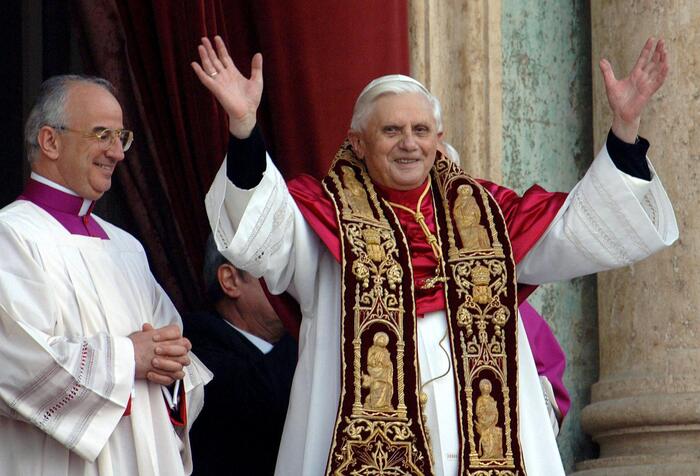Let a "healthy secularism" be the guiding star in relations between State and Church, Benedict XVI, the first pope emeritus of the Church, who died yesterday in the Vatican, has repeatedly said.
Even before his election to the papal throne, and even more during the almost eight years of his pontificate, Joseph Ratzinger, together with in-depth theological reflections, delivered a sort of instruction on the relationship between the State and the Church, based precisely on the concept of healthy secularism.
According to Ratzinger, for the affirmation of this objective, it cannot be the Church that indicates which political and social order is to be preferred, but it is the people who must decide freely;
in the same way, the State cannot consider religion as a simple individual sentiment, to be confined to the private sphere only.
On the contrary, religion, being also organized in visible structures, as is the case with the Church, must be recognized as a public community presence.
In reality - the then Pope Benedict XVI has repeatedly observed - today secularism is commonly understood as the exclusion of religion from the various spheres of society and its confinement within the sphere of individual conscience.
Secularism, therefore - according to some - would be expressed in the total separation between the State and the Church.
With respect to such a "non-religious vision of life, of thought and of morals: a vision, that is, in which there is no place for God" - observed Ratzinger - it is the task "of all believers, especially believers in Christ, contribute to developing a concept of secularism which, on the one hand, recognizes God and his moral law, Christ and his Church, the place they deserve in human, individual and social life; and, on the other, you affirm and respect the '
This conciliar affirmation - Ratzinger explained - constitutes "the doctrinal basis of that 'healthy secularism' which implies the effective autonomy of earthly realities, certainly not from the moral order, but from the ecclesiastical sphere. It cannot therefore be the Church to indicate which political and social order is to be preferred, but it is the people who must freely decide the best and most suitable ways of organizing political life. Any direct intervention by the Church in this field would be an undue interference".
On the other hand, "healthy secularism" means that the State does not consider religion as a mere individual sentiment, which could be confined to the private sphere alone.
On the contrary, religion, being also organized in visible structures, as is the case with the Church, must be recognized as a public community presence.
This also implies that each religious confession (provided it is not in conflict with the moral order and not dangerous for public order) is guaranteed the free exercise of worship activities - spiritual, cultural, educational and charitable - of the community of believers" .
On the basis of these considerations, "it is certainly not an expression of secularism but its degeneration into secularism" - Benedict XVI explained several times - the hostility to any form of political and cultural relevance of religion;
to the presence, in particular, of every religious symbol in public institutions.
Nor is it a sign of healthy secularism - Ratzinger continued - the refusal of the Christian community, and of those who legitimately represent it, of the right to pronounce on the moral problems that today challenge the conscience of all human beings, in particular of legislators and of jurists.
In fact, it is not a matter of undue interference by the Church in the legislative activity, proper and exclusive to the State, but of the
affirmation and defense of the great values that give meaning to a person's life and safeguard their dignity.
"These values - Ratzinger went on to explain - before being Christian, are human, therefore such as not to leave the Church indifferent and silent, which has the duty to firmly proclaim the truth about man and his destiny".
Ultimately, if it is true that due to her nature and mission "the Church is not and does not intend to be a political agent", nevertheless she "has a profound interest in the good of the political community".
This specific contribution is given mainly by the lay faithful who, by participating in public life, commit themselves with the other members of society to "build a just order in society".
Starting from these premises, Ratzinger also issued a decisive warning: man must be reminded that "without God" he "is lost" and "the exclusion of religion from social life, in particular the marginalization of Christianity, undermines the very foundations of human coexistence. Before being of a social and political order, these foundations, in fact, are of a moral order".

